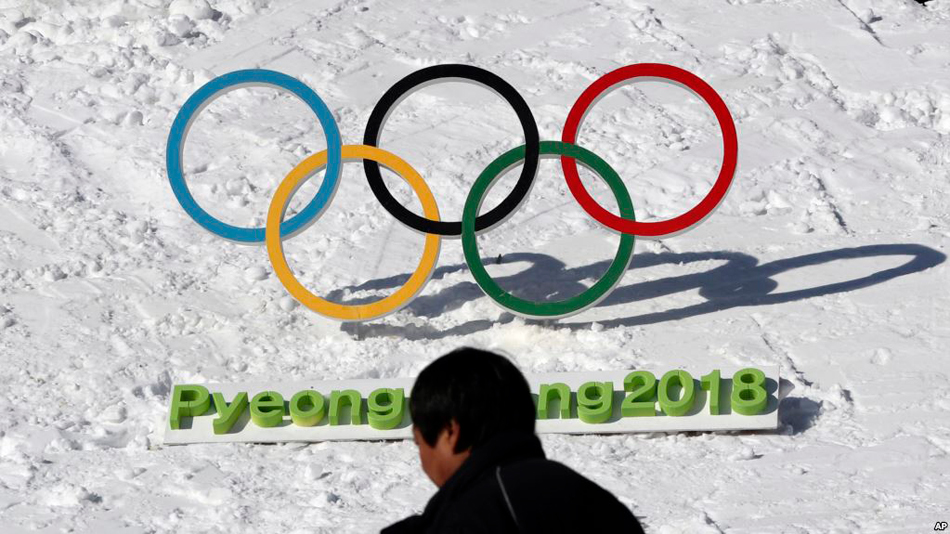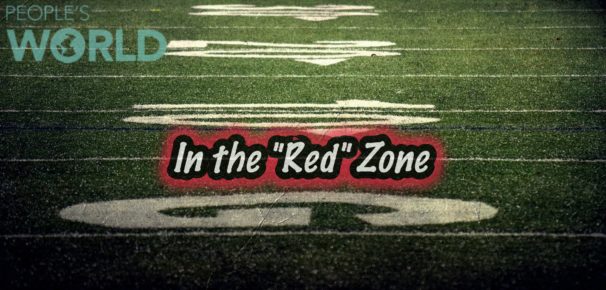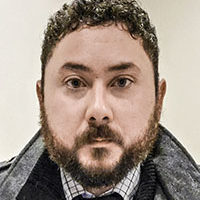
We are now entering the third week of the 2018 Winter Olympics in Pyeongchang, South Korea. And I haven’t watched a single moment of it. What I have been watching is divisive cloak and dagger politics, national pride bordering on extreme nationalism—take a look at the “OAR” fans, and an event that promotes “peace and unity” at the expense of the host countries’ own people.
Norman Chad, sports columnist for the Washington Post, said it best:
“There’s a fine line between national pride and nationalism. Naturally, people should be proud of their roots, whether it be a nation, hometown, or neighborhood. But this too often bleeds into xenophobic chauvinism, an us-vs.-them mentality, a need to validate ourselves by proving our way of life is superior.”
We don’t have to look too far into our past to see that sense of “superiority” play out, just 37 years ago when the U.S. boycotted the 1980 Moscow Summer Olympics.
President Jimmy Carter, a wealthy, liberal Georgia peanut farmer, began to consider the idea of boycotting the 1980 games—along with other western nations—shortly after the Soviet Union made inroads into Afghanistan, supporting the local communists in their fight against Islamic rebel forces (the Mujahideen whose members included Osama-bin Laden, founder of Al-Qaeda).
Obviously, the Carter administration rebuked the Soviet Union, and described the”invasion” as:”A deliberate effort by a powerful atheistic government to subjugate an independent Islamic people to soviet control over Afghanistan oils supplies.”
Carter set January 20, 1980, as the deadline for the withdrawal of Soviet troops from Afghanistan (only the U.S. has the right invade, disrupt, destabilize, or influence other nations?), or else the USSR would face the consequences: ruined Summer Olympic Games, and a trade embargo on grain and information technology.
While several international interventions took place, the International Olympic Committee and the administration were unable to reach a settlement agreement. Carter reaffirmed the boycott and viciously pushed other nations to follow the U. S.— it worked. Only 16 nations competed that year, and several U.S. athletes were devastated by the politically motivated decision. Carter went so far as to threaten revoking passports of U.S. athletes if they tried to attend the games under a neutral banner, an idea floated around by the IOC as a compromise to those athletes affected.
German Chancellor Helmut Schmidt said that the inappropriate American attitude that other countries “should simply do as they are told” was unacceptable. After watching this year’s opening ceremonies, it doesn’t seem like our position on foreign relations has changed.
As the 1980 games came to a close, the Los Angeles city flag was displayed, not the U.S. flag, to show the next Olympic Games host.
The 1984 L.A. Boycott
Announcing its intentions to boycott the 1984 Summer Olympics, the USSR expressed concerns over Soviet athlete security amid the anti-soviet, chauvinistic hysteria promoted by the United States.
At the time, most of the world’s media outlets saw the boycott as retaliation for the U.S. boycott of the 1980 Moscow games. This revenge theory was brought about by the Reagan administration.
Reagan had a personal and political stake in the games since they were being held in his home state, where he had served as governor.
Regan’s comments on the boycott were aired to the world in an Irish television interview recorded at the white house.
“I know that no one can really understand or fathom the thinking of the politburo, the people in the politiuburo of the Soviet Union, but I would hazard two ideas that stick in my mind as possibly and explanation for what they’ve done,” said Reagan. “One is retaliation for the (1980) boycott.. .No. 2, frankly, I think they don’t want to be embarrassed by having revered athletes in their country come to this country and decide to stay.”
That increasing political tension, similar to the one felt between North Korea and the U.S. today, cast a long shadow over the city of angels.
Los Angeles Olympic Games organizer Peter Ueberroth played into the political games by keeping his hard line stance that the Soviet threats were merely a ploy to put pressure the U.S. but that the USSR would eventually cave, and compete in the games.
In the end, 18 socialist countries boycotted the 1984 games and the three top medal winners from the 1980 Moscow Olympic Games did not participate as part of the boycott, weakening the field of competition. The No. 1 spot went to the U.S. that year, continuing that false sense of superiority.
The Olympic Games can continue to pretend to be a great international unifier, but we know the truth.
A perfect example of such bitter truth was brought to us by the Korean Federation of Construction Industry Trade Unions (KFCITU) and the Korean Confederation of Trade Unions (KCTU).
One the eve of the Olympic Games’ opening ceremony, Korean trade unionists, along with the Building and Wood Workers’ International (BWI) held a press conference calling for the release imprisoned trade union activists and to highlight major labor violations.
“In South Korea, one of the major problems we found was outstanding back wages or delayed payment of wages. At any one point in time delayed wages totaled nearly USD $12 million. This is not acceptable. Without consistent and decent wages, workers cannot feed their families and are left destitute,” said Apolinar Tolentino, Regional Representative for BWI Asia Pacific Region.
“We had highlighted the issue of back wages to the International Olympic Committee several times, but unfortunately, they failed to react, stating it was a national problem. This is not acceptable.”
For KCTU Vice-President Kim Kyoung, the issue is the gross inequality of the Korean justice system.
“We are angered by the release of Lee Jae Yong, heir of the Samsung conglomerate, while Han Sang Gyun (union member) remains in jail. This shows that the law is not just and there are two different sets of standards — one for business leaders and another for trade union leaders. This is not acceptable.” said Kyoung.
“We will channel our anger to continue to struggle for the release of Han Sang Gyu and Lee Yong Joo former KCTU General Secretary and to create a just and more equal society.”
As you cheer for every U.S. gold medal win and chant “U.S.A! U.S.A!,” remember that this is all just part of political warfare disguised as friendly international competition.
Also, here’s the list of those jailed trade union activists (who knows, maybe this could happen here at home, too):
- Kim Seong Jong, Member of Korean Construction Workers Union-KFCITU
- Hong Man Ki, Korean Construction Workers Union-KFCITU
- Kim bong Hwan, Korean Construction Workers Union, KFCITU
- Han Sang Gyu, former President, Korean Confederation of Trade Unions (KCTU)
- Lee Young Joo, former General Secretary, Korean Confederation of Trade Unions (KCTU)
- Lee San Il, Korean Metal Workers Union-KCTU
- Lim Song Ra, Korean Metal Workers Union-KCTU
- Park Young Ho, Street Vendors Union-KCTU
- Park Jong Sang, Kyonggi Branch, KCTU












Comments